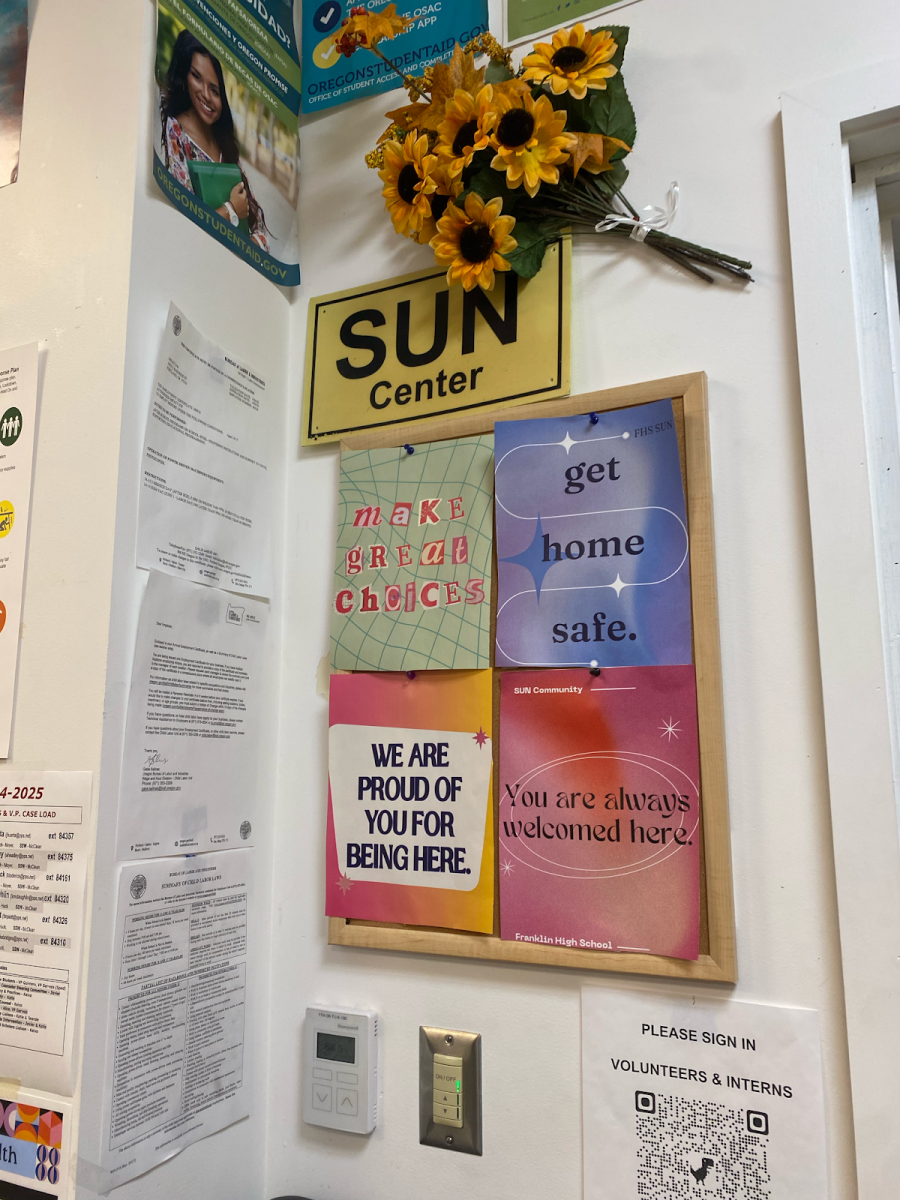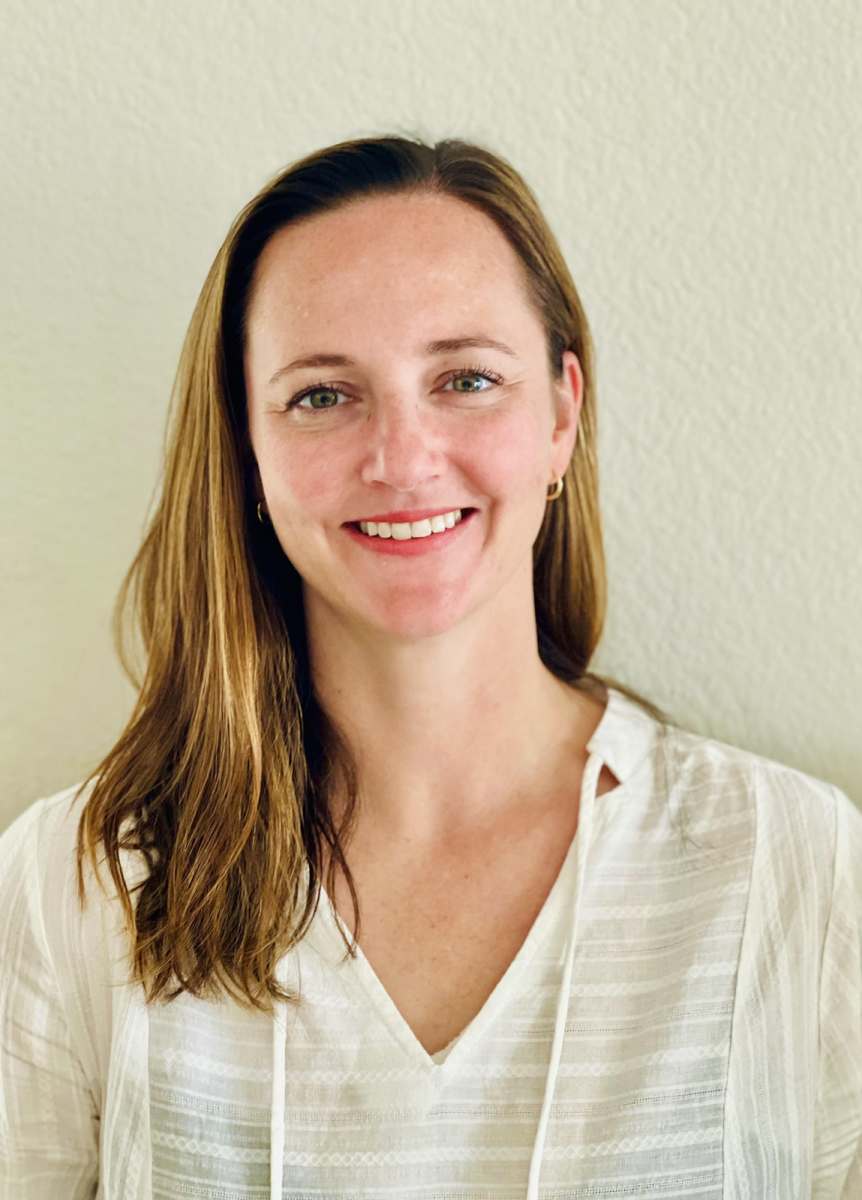Franklin High School’s (FHS) forecasting for the 2024-25 school year shows changes in the classes offered for English 3-4, 5-6, and 7-8 credit. In prior years, upperclassmen have had the opportunity to choose between a variety of themed English classes — ranging from Women’s Literature, to Hip-Hip Literature, to Dystopian Literature. This year, however, Portland Public Schools (PPS) is implementing a new requirement allowing only English classes following the district-adopted curriculum or being taught at college-level standards — being either Advanced Placement (AP), International Baccalaureate (IB), or dual credit through Portland Community College (PCC) — to count for a core English credit. Through this change, PPS aims to create consistent English instruction among all students in PPS.
At FHS, certain thematic English classes will continue to be offered for core English credit by adapting them into dual credit courses through PCC. In addition to College Writing and Literature — the currently offered dual credit English class for seniors — students will be able to take college level versions of Hip-Hop Literature, Film and Literature, Fiction and Mythology, and Sports and Culture. This means that Women’s Literature, Dystopian Literature, Social Influencing and Revolutionary Voices, and Medical Literacy and Composition will not be returning.
For the upcoming school year, freshmen at FHS will continue to take standard English 1-2. Sophomores will have the choice between the standard English 3-4 class or having the new opportunity to receive an English credit for taking AP Seminar. Rising upperclassmen — in the face of district changes to the English curriculums — will now choose between AP English classes, a dual-credit English class, or the standard curriculum-based 5-6 and 7-8 English classes.
The decision to change which courses earn core English credit was part of a long, multi-year process which stemmed from PPS’ attempts to fulfill requirements set by the state of Oregon. These requirements call for schools to identify and implement a standard curriculum for English classes to follow. Filip Hristic, PPS senior director of high school core academics, explains how “this year is year two of the actual implementation of the adopted curriculum.”
Hristic expands on how changing the requirements for a class to count as a core English credit aligns with PPS’ goal “to make sure that every student, in every classroom, in every school has a high quality learning experience.” As all English classes in all schools will share common assessments, goals, and texts that teachers pick from to teach, this is meant to create a “common curriculum that is consistent across buildings,” describes Hristic.
The adoption of a common curriculum among English classes throughout PPS attempts to guarantee that students will be properly and equally prepared for future academic success, rather than their education varying based on schools they attend and teachers they have. However, shifting to this common curriculum can be complex as standardized curriculums often have more potential to struggle with integrating the variety of perspectives that are often present in the diverse classrooms they are taught in. With standardized curriculums, some students may not be able to see themselves as a part of the narratives and perspectives being taught in class.
Megan Humphreys teaches Medical Literacy and Composition at FHS, one of the themed classes previously offered for English 5-6. She has been able to work with FHS’ librarian, Ayn Frazee, to find texts that surround medical topics while centering marginalized voices. Through reading these diverse texts, Humphreys has had the ability to foster conversations where all of her students feel like they are given a place to speak. While reading their latest novel, “The Immortal Life of Henrietta Lacks,” Humphreys explains how the text discusses the life of an impoverished black woman in the 1950s who was taken advantage of by the medical system. Her classes are able to “talk about voices of color while also talking about ethics and morals and how the body is used,” shares Humphreys.
As PPS educators teach to diverse classrooms with varying student experiences and needs, Hristic describes, “[PPS] wants teachers to have a critical eye towards what is being taught [and] how it’s being taught so that they are effectively engaging the students that they serve.” Hristic expands on this, explaining that PPS wants the adoption process of this new policy to create an opportunity for English classrooms across the district to have the same curriculum while still having each classroom remain unique in how standards and content are taught.
As FHS transitions to teach the adopted curriculum, FHS Principal and English department advisor, Zulema Naegele, expands on how important it is to her “for students to be able to see themselves in the curriculum and see themselves in the content that they’re reading.” Naegele hopes for this to be achieved as teachers critically look at the adopted curriculum and are “able to supplement with other voices and other perspectives to what’s already there in the curriculum.” This could be done through supplementary texts and creating the space to guide students through analyzing the content they are being taught.
Concern over shifting to a standardized curriculum lies not only in questions of diverse voices but also in students’ choice in their education. Themed English classes have been providing upperclassmen with the opportunity to have more of a say in the classes they are taking while also earning their required credits for graduation. Students with varying interests collaborated with peers and learned content that made them excited to go to class.
By teaching the English 5-6 content through the lens of the medical related topics — pulling from her background in nursing — Humphreys drew students interested in going into the medical field in the future. Humphreys speaks from her own experiences working with a variety of students, saying, “For certain students English is very scary, and it is really hard to engage that student and get them interested in something.” English classes that focus on specific topics have been able to combat this; Humphreys has found that “when you can show [students] something interesting to them personally, you can get that buy-in and they can get that interest.”
Naegele describes how while the English department at FHS decides what English classes to offer under the district’s expanded parameters, she aims to continue implementing student choice and find a “balance to be able to give choice and also meet the standards and assessments requirements that the district is having.” Naegele explains how the adapted college level classes will be able to cover “thematic topics and be dual credit.”
The process for these thematic English classes to become dual credit courses involves English teachers applying for the certification to teach a PCC course. Then, they work in conjunction with a PCC instructor to align the specific themed curriculum to the college level standards. Naegele adds how despite these classes providing college credit, they will “still be using the high school proficiency grading that we use at the high school level.”
These adapted dual credit classes aim to provide an opportunity for students to get free college credit and still have the possibility to study English under a themed topic. This ultimately allows students to get a sense of what college level work looks like while still in high school. Beyond the district’s goals of aligning English curriculums, Naegele states that her goals moving forward for FHS’ English department are to follow this alignment, “and still be able to offer choice but also offer more opportunity for dual credit.”
As students, teachers, and other community members learn about these changes, many have taken steps to share their own perspective and voice. This has been seen from sending letters to PPS board members, to sharing their perspectives across social media platforms, to organizing to share public comment at future board meetings. Naegele discusses how she aims to prioritize the concern that has been brought up due to these changes, stating, “I am definitely focusing on communication and being able to communicate these changes … take feedback and questions, and being able to work with the district on this information.”
As the new requirements for gaining core English credit appear in the FHS forecasting guide for the coming school year, the lengthy process of adopting a new English curriculum impacts every rising FHS student. Change not only brings up opportunities for nuanced discussion on how high school English classes will teach grade-level content, but also for how themed English classes plan to adapt. Along with the mentioned four classes adapting to be dual credit in the upcoming year, Naegele aims to continue adding back as many themed English classes as possible through dual credit adaptation.

































